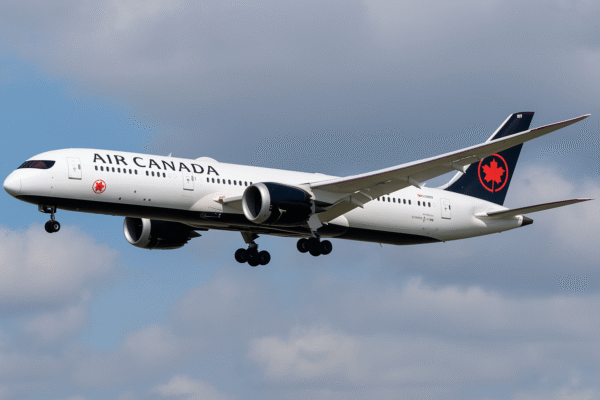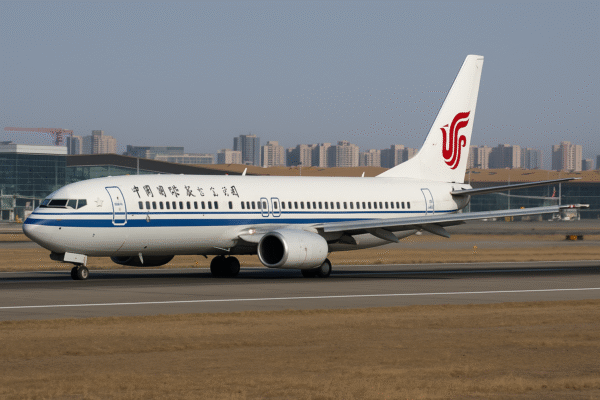Air China Launches Direct Beijing–Almaty Flights, Strengthening China–Kazakhstan Tourism and Trade Ties
Beijing, China – Almaty, Kazakhstan – In a move set to redefine regional connectivity, Air China has officially launched a direct air corridor between Beijing and Almaty, Kazakhstan. The new nonstop service, operating four times per week, is designed to enhance tourism, streamline logistics, and deepen economic and diplomatic cooperation between China and Kazakhstan—two key partners in the Belt and Road Initiative (BRI).
The inaugural flight landed at Almaty International Airport this week, marking a significant milestone in China–Central Asia air connectivity. Designated under flight numbers CA799 and CA800, the route will operate on Mondays, Wednesdays, Fridays, and Sundays using Boeing 737 aircraft. With no need for connecting flights, the service drastically cuts down travel time for business travelers, tourists, students, and cargo operators alike.
Unlocking Regional Potential
This new Beijing–Almaty air link is more than just a transport route—it is a strategic bridge between East Asia and Central Asia. Both capitals serve as vital economic and cultural centers, and this route is poised to serve multiple sectors, from tourism and education to logistics and energy.
Kazakhstan’s Ministry of Tourism has been actively promoting the country as a key gateway to Central Asia. The launch of direct flights from China complements Kazakhstan’s broader tourism strategy, which includes attracting five million international tourists by 2030. According to Kazakh Invest, over 750,000 Chinese tourists are expected to visit Kazakhstan annually by 2028, with air access playing a central role.
On the Chinese side, Beijing’s status as a political, cultural, and technological hub makes it a prime departure point for outbound travelers. With Kazakhstan being China’s second-largest trading partner in Central Asia, the need for faster business and cargo movement has grown more urgent. The new route supports initiatives like the China-Kazakhstan Logistics Base in Lianyungang, which facilitates transcontinental trade between the two nations.
Tourism Growth on Both Ends
Almaty, Kazakhstan’s largest city, is renowned for its snow-capped Tian Shan mountains, historical landmarks, and rapidly growing hospitality sector. Direct flights from Beijing are expected to substantially increase Chinese tourism to the region, especially for nature lovers, adventure seekers, and cultural tourists.
Meanwhile, Kazakh travelers heading to Beijing will gain easier access to world-class attractions such as the Great Wall, the Forbidden City, and China’s thriving shopping and entertainment districts. The route also provides academic and medical travelers with faster access to Chinese institutions and hospitals.
According to the Kazakhstan Civil Aviation Committee, direct connectivity is a key goal of the country’s aviation policy. Almaty Airport, operated by TAV Airports (a subsidiary of Groupe ADP), is undergoing major upgrades to support projected increases in passenger traffic, which is expected to reach 14 million annually by 2027.
Trade and Cargo Efficiency
Besides tourism, the route is set to streamline trade operations. China and Kazakhstan are both landlocked nations with strategic interests in air cargo. Direct flights help reduce lead times for high-value goods, medical supplies, and perishable items.
Data from China’s Ministry of Commerce indicates bilateral trade reached $41 billion in 2023, a 20% increase from the previous year. Air freight is expected to become an increasingly important channel, particularly for time-sensitive deliveries such as electronics, textiles, and pharmaceuticals. The new flight corridor thus supports both countries’ broader logistics modernization efforts.
Belt and Road Synergy
The Beijing–Almaty air corridor aligns with the ambitions of the Belt and Road Initiative, which celebrates its 12th anniversary in 2025. The BRI emphasizes infrastructure development and people-to-people connectivity across Asia, the Middle East, and Europe. Kazakhstan, a founding BRI partner, plays a crucial transit role thanks to its geographic location and extensive railway and road infrastructure.
The direct route enhances the China–Kazakhstan transportation network and may serve as a model for future air links to other Central Asian capitals like Tashkent, Bishkek, and Dushanbe.
Expanding Aviation Horizons
The launch also reflects growing global interest in Central Asia’s aviation sector. According to the International Air Transport Association (IATA), Central Asia’s air traffic is projected to grow by 4.5% annually through 2030. With airports in Almaty and Nur-Sultan being modernized, and visa policies being relaxed for key markets, the region is quickly becoming more accessible.
In line with this, an unnamed Middle Eastern carrier recently confirmed plans to launch direct services from Abu Dhabi to Almaty and Tashkent by 2026. These developments are expected to increase competition and diversify travel options, ultimately benefiting consumers.
A Gateway for the Future
The Beijing–Almaty route serves as a vital artery for regional integration. It reduces friction in business operations, strengthens academic and cultural exchange, and makes tourism more accessible for both sides. For Air China, the move is part of a broader expansion strategy aimed at securing key hubs across Eurasia.
Looking ahead, both governments are expected to support continued route development, airspace liberalization, and the upgrading of passenger and cargo handling infrastructure. With tourism rebounding post-pandemic and new market opportunities emerging, this air corridor represents not just a flight path—but a strategic investment in the region’s future.
For more travel news like this, keep reading Global Travel Wire




















